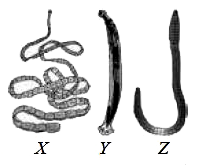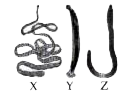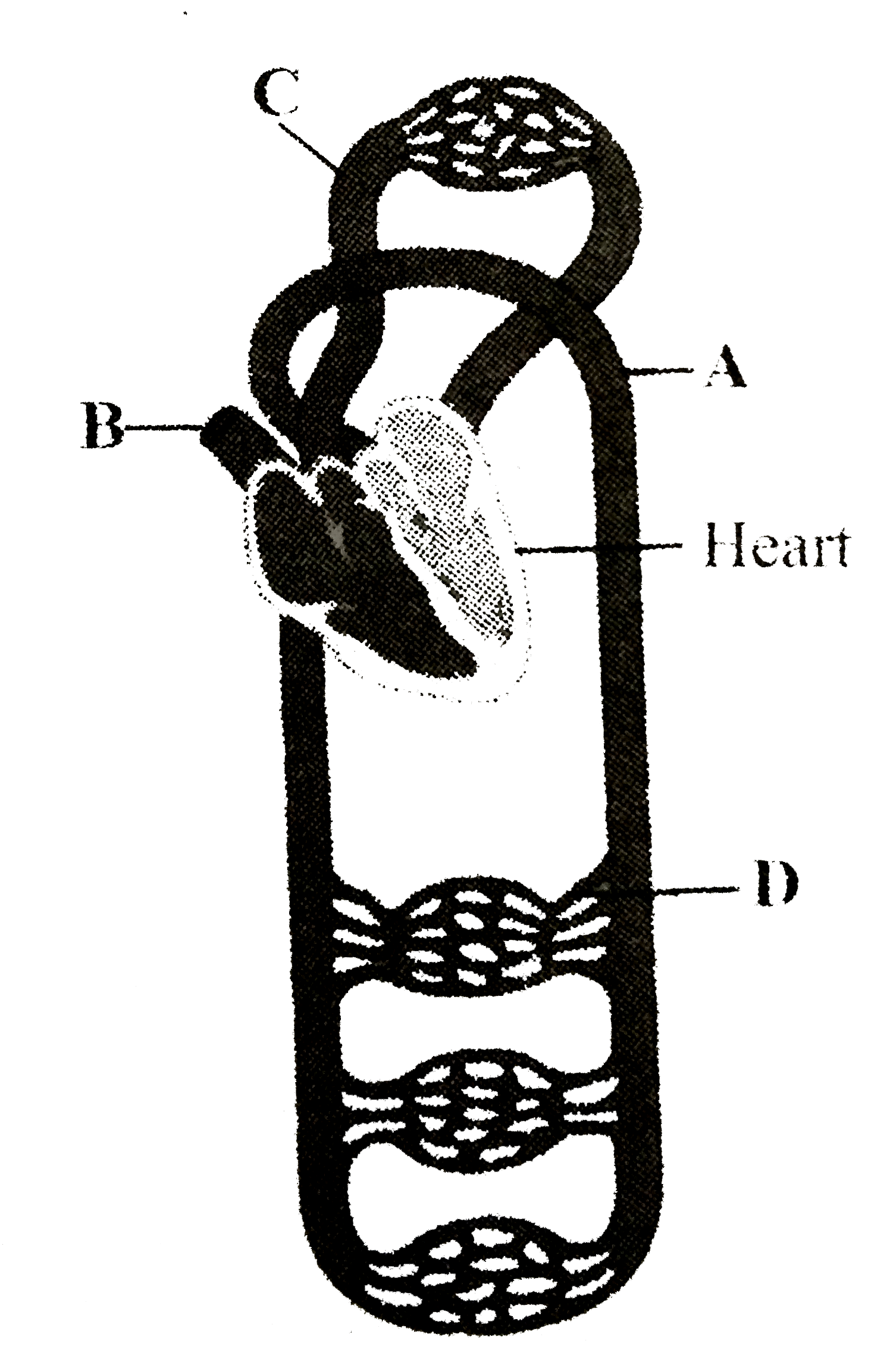The statements given below shows some characteristics of a phylum. Identify it.
(i) Tissue absent (ii) Internal fertilisation
(iii) Developments is indirect
(iv) Spongocelate with ostia (many) and single osculum and canal system
(v) Sexes are hermaphrodite.
Cnidaria
Porifera
Platyhelminthes
Ctenophora
The correct Answer is:B
Step by step video, text & image solution for The statements given below shows some characteristics of a phylum. Identify it. (i) Tissue absent (ii) Internal fertilisation (iii) Developments is indirect (iv) Spongocelate with ostia (many) and single osculum and canal system (v) Sexes are hermaphrodite. by Biology experts to help you in doubts & scoring excellent marks in Class 11 exams.
Updated on:21/07/2023Topper's Solved these Questions
Similar Questions
Refer to the given figures of different animals.
Read the characteristics given below and select the option that correctly matches these animals with their characteristics stated.

(i) Coelom absent
(ii) Pseudocoelom present
(iii) True coelom present
(iv) Triploblastic animal
(v) Flame cells as excretory organs
(vi) Body metamerically segmented
(vii) Nephridia are excretory organs
View SolutionThe characters given below are shown by
(i) Extracellular and intracellular digestion
(ii) Exclusively marine, radially symmetrical, diploblastic, tissue level of organisation
(iii) Bisexual, fertilisation external and indirect development
(iv) No asexual reproduction
(v) Presence of comb plates
View Solution
Knowledge Check
Tissue absent
Internal fertilization
Development is indirect (larval stage is present)
Spongocoelate with ostia (many) and single osculum and canal system
Sexes are hermaphrodite.
The above characteristics belong to which of following -ACnidariaBPorifera (sponges)CPlatyhelminthesDCtenophoraRead the statements given below .
I. Sinus venosus, specialised to receive venus blood is present in single circuit circulation.
II. Sinus venosus is absent in amphibians
Identify these statemetns as true or falseAI-True, II-falseBI-fasle, II-trueCBoth I and II are trueDBoth I and II are falseRefer to the given figures of different animals. Read the characteristics given below and select the option that correctly matches these animals with their characteristics stated.

(i) Coelom absent
(ii) Pseudocoelom present
(iii) True coelom present
(iv) Triploblastic animal
(v) Flame cells as excretory organs
(vi) Body metamerically segmented
(vii) Nephridia are excretory organsAX-(i, vi, vii), Y-(ii, iv, vi), Z-(iii, v, vi)BX-(i, iv, v), Y-(ii, iv), Z-(iii, iv, vi, vii)CX-(ii, iv, vi), Y-(i, v, vii), Z-(iii, iv, v)DX-(iii, vi), Y-(ii, iv, vii), Z-(i, v)
Given below is a list of few sexually tranmitted infections. Identify the deseases caused by bacteria among these
(i) Gonorrhoea
(ii) Giardiasis
(iii) Trichomoniasis
(iv) Chancroid
(v) Syphilis
View SolutionRefer to the given characteristics of some flowers.
(i) LIght and non-sticky pollen grains
(ii) Exserted stigmas and anthers
(iii) Large, often feathert stigmas
(iv) Flowers colourless, odourless and nectarless
(v) Common in grasses
Above features are the characteristics of
View SolutionThe given figure is of circulatory system. Identify the labelled parts (A-D) from the list (i-vii).
(i) Pulmonary circulation
(ii) Systemic circulation
(iii) Superior vena cava
(iv) Inferior vena cava
(v) Aorta
(vi) Veins and venules
(vii) Arterioles and capillaries

View SolutionAmong the statements given below select the ones that correctly describes the concept of sustainable development
(i) planned growth with minimum damage to the environment.
(ii) growth irrespective of the extent of damage caused to the environment.
(iii) stopping all development work to conserve the environment.
(iv) growth that is acceptable to all the stakeholders.
View SolutionGiven below are few characteristic features of phylum -Platyhelminthes.
I. The presence of ectodermal, endodermal and mesodermal layer.
II. The presence of hydroskeleton.
III. Bilateral symmetry
IV. Complete digestive system.
View Solution

